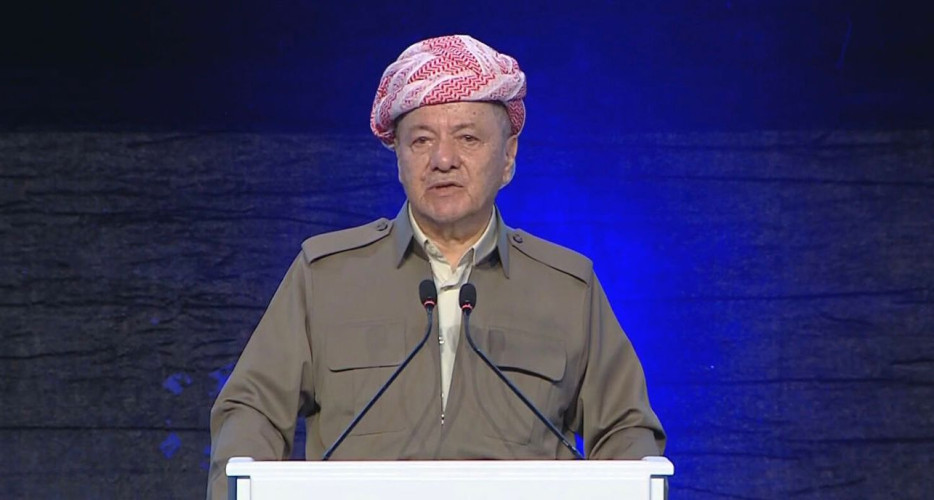
Peregraf
Masoud Barzani, leader of the Kurdistan Democratic Party (KDP), has called for a definitive resolution to the ongoing salary crisis affecting public sector employees in the Kurdistan Region. In a recent speech, Barzani criticized the Iraqi federal government for repeated delays in salary disbursements, labeling the situation an "injustice" against the Kurdish people and their history. He posed a rhetorical question: "Are we beggars at their [Baghdad's] doorstep?"
Barzani delivered these remarks during a ceremony marking the unification of two student and youth organizations affiliated with the KDP. He condemned Baghdad's treatment of the Kurdistan Regional Government (KRG), asserting that it undermines the principles of federalism enshrined in Iraq's constitution. "If the intention is to dismantle the federal system in Iraq, they should say so clearly, so that we no longer believe in federalism," he stated. "Those who accept it can continue, and those who do not can decide their own path. But the current treatment of the Kurdistan Region is not in line with federal principles."
Emphasizing the importance of "participation, balance, and consensus" in governance, Barzani warned that neglecting these principles would hinder Iraq's stability.
On the Formation of the New KRG Cabinet
Addressing the formation of the next KRG cabinet, Barzani urged both the KDP and the Patriotic Union of Kurdistan (PUK) to expedite the process. He stressed the need for a unified administration: "The next KRG must be based on one government, one Kurdistan Parliament, and one Peshmerga force. If that is not possible, then it is better not to form a government at all."
His remarks implicitly acknowledged the de facto division of the Kurdistan Region into two administrations: Sulaymaniyah and Halabja, governed by the PUK and known as the “Green Zone,” and Erbil and Dohuk, governed by the KDP and known as the “Yellow Zone.” Currently, the KRG Prime Minister—affiliated with the KDP—has limited authority in PUK-controlled areas, and the Deputy Prime Minister—affiliated with the PUK—has no authority in KDP-held territories.
The Kurdistan Parliament, when it convenes, is often seen as a symbolic institution, with its decisions largely shaped by the dominant ruling parties. The Peshmerga forces remain divided along party lines, and despite repeated calls and pressure from the United States and the international coalition, efforts to unify them under a single national command have yet to succeed.
Barzani made it clear that the KDP would not support a continuation of the existing power-sharing arrangement: "The next Kurdistan Regional Government will not be formed on a 50-50 basis." This signals the party’s rejection of the traditional equal division of power between the Green and Yellow Zones, a practice that has characterized KRG governance for years.
The Kurdistan Democratic Party (KDP) emerged victorious in the Iraqi Kurdish parliamentary election, securing 39 seats and positioning itself to lead the next regional government. The Patriotic Union of Kurdistan (PUK), its historical rival and coalition partner, won 23 seats. Voter turnout was reported at 72%. The Iraqi Kurdistan Parliament consists of 100 seats, with five reserved for minority groups. Despite weak opposition, the KDP and PUK, who have shared power since 1992, are expected to continue their coalition, with the KDP taking a dominant role.